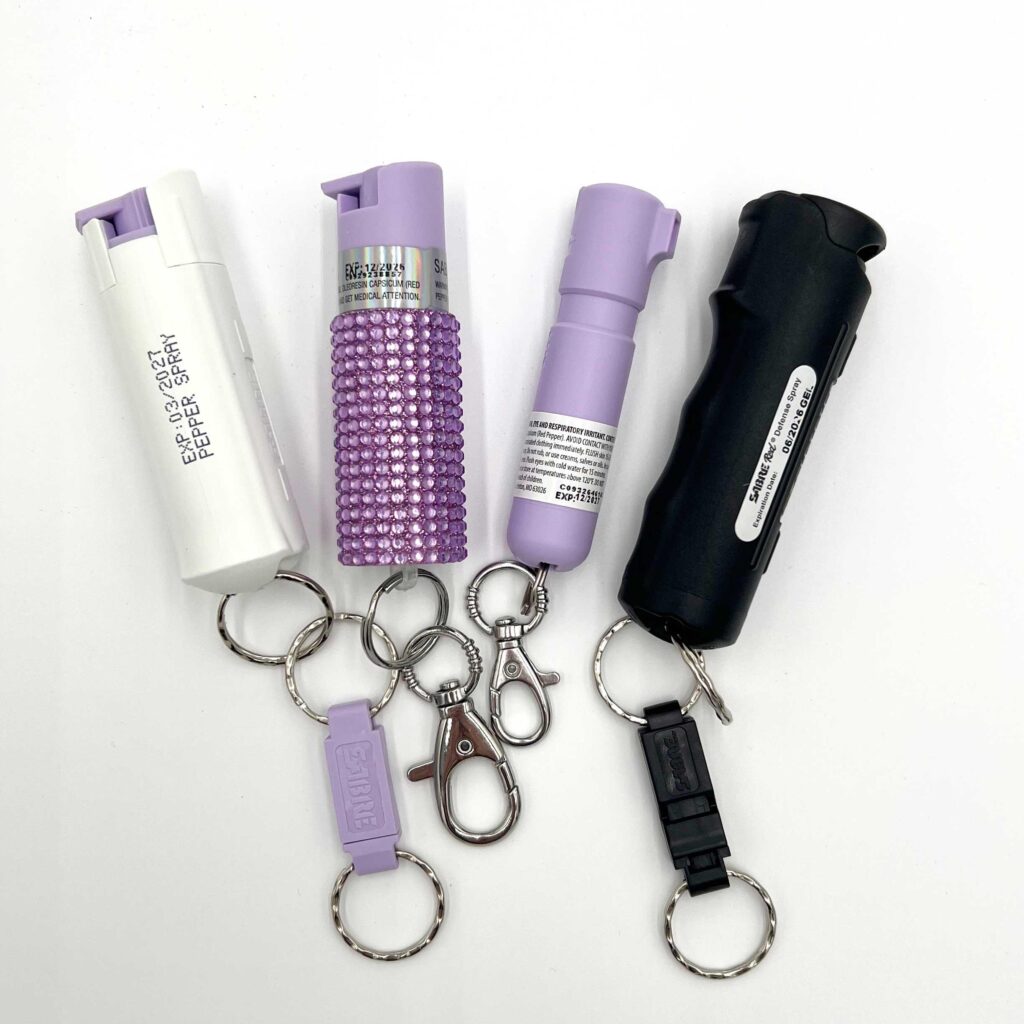Table of Contents
- Understanding the Chemical Stability and Shelf-Life of Pepper Spray
- Factors Influencing Expiration and Effectiveness Over Time
- Safe Storage Practices to Maximize Pepper Spray Longevity
- When and How to Properly Dispose of Expired Pepper Spray
- Future Outlook
Understanding the Chemical Stability and Shelf-Life of Pepper Spray
The chemical components in pepper spray are carefully formulated to maintain potency over time, but various factors can influence their stability. The main active ingredient, capsaicin, along with inert propellants and preservatives, work together to ensure effective delivery and maximum irritation upon deployment. However, exposure to extreme temperatures, sunlight, or humidity can accelerate the degradation process. Over time, the concentration of capsaicin may decrease, leading to reduced effectiveness. Therefore, manufacturers typically provide an expiration date based on rigorous stability testing that estimates when the spray will retain optimal performance.
To prolong shelf-life, it’s important to store pepper spray in a controlled environment. Here are some key storage tips:
- Keep it in a cool, dry place away from direct sunlight.
- Avoid exposing the canister to extreme heat or freezing temperatures.
- Regularly inspect for signs of corrosion, leakage, or damage.
- Adhere to the manufacturer’s recommended expiration date for maximum safety and effectiveness.
Factors Influencing Expiration and Effectiveness Over Time
Several factors play a crucial role in determining how long your pepper spray remains effective and when it expires. Storage conditions are among the most significant influencers. Exposure to extreme temperatures-whether excessively hot or cold-can cause the propellant and active ingredients to degrade more rapidly. Moisture and direct sunlight also contribute to chemical breakdown, compromising the spray’s potency. Always store pepper spray in a cool, dry place away from direct light to maximize its shelf life.
Moreover, the quality of the container and the formulation inside impact longevity. Over time, pressure can decrease inside the canister, leading to a weak or inconsistent spray. Ingredients like oleoresin capsicum (OC) naturally lose strength as chemical compounds oxidize. Regularly inspecting your spray for signs of damage, rust, or leakage can help ensure it will function correctly when you need it most. Remember, even if your pepper spray looks intact, its effectiveness might diminish after the expiration date, so routine replacement is key for reliable self-defense.
Safe Storage Practices to Maximize Pepper Spray Longevity
Proper storage is crucial to maintain the effectiveness of your pepper spray throughout its usable life. Always keep your spray in a cool, dry place away from direct sunlight, as exposure to heat and UV rays can degrade the chemical formula inside. Avoid storing it in places that experience temperature extremes, such as vehicles or near heating vents, because fluctuating temperatures can cause the propellant pressure to weaken or build up dangerously. A stable environment helps preserve the canister’s integrity and prevents leaks or malfunctions.
- Store upright: Keeping pepper spray upright prevents leakage and ensures consistent pressure.
- Keep out of reach: To avoid accidental discharge or misuse, store it in a secure yet accessible location.
- Avoid moisture: High humidity can cause corrosion on the canister and affect the spray’s delivery.
- Check expiration dates regularly: Even with ideal storage, pepper spray loses potency after its shelf-life.
When and How to Properly Dispose of Expired Pepper Spray
Proper disposal of expired pepper spray is essential for both safety and environmental reasons. Since pepper spray contains pressurized canisters and chemical irritants, it should never be thrown into regular trash or recycling bins. Instead, identify local hazardous waste disposal facilities or community collection events where such items are accepted. Many law enforcement agencies and fire departments also offer safe disposal services for expired or unused pepper spray. Before dropping off, ensure the canister is intact and not leaking, and check for specific disposal guidelines in your area to avoid any legal or environmental risks.
When preparing to dispose of expired pepper spray, handle the canister carefully and avoid puncturing or incinerating it, as this can cause dangerous bursts or release of chemicals. If your local facility offers a take-back program, follow their instructions precisely, which may include:
- Transporting the canister in a sealed plastic bag to contain any accidental leaks
- Labeling the container as hazardous waste if required
- Keeping the spray away from heat sources during transport
Future Outlook
In summary, understanding the shelf-life and expiration of pepper spray is essential for ensuring your personal safety and the effectiveness of your self-defense tool. Regularly checking the expiration date, storing your pepper spray properly, and replacing it when necessary can make all the difference in a critical moment. Remember, an expired or improperly maintained canister may fail when you need it most. Staying informed and proactive about your pepper spray’s condition ensures that you’re always prepared and protected. Stay safe out there!Check Our Other Blogs
- StunGun – Your Trusted Source for Stun Guns, Laws, and Self-Defense Tips
- PepperSprayLaws – Your Trusted Resource for Pepper Spray Information
- StunGunLaws – Your Trusted Guide to Stun Gun Legality and Safety




